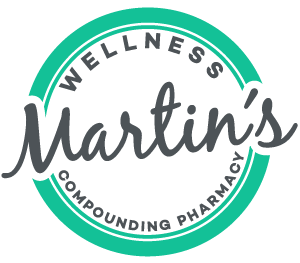Part 2: Managing Symptoms and Enhancing Quality of Life During Perimenopause and Menopause

Navigating the transitions of perimenopause and menopause can be challenging for many women, but with the right knowledge and tools, these phases can be managed effectively. In the previous blog, we explored the key differences between perimenopause and menopause. Now, we’ll dive into practical strategies for managing symptoms, improving quality of life, and making informed decisions about treatment options.
Managing Perimenopause Symptoms
Perimenopause often comes with a range of symptoms due to fluctuating hormone levels. These symptoms can vary from mild to severe and may impact daily life. Fortunately, several strategies can help manage these changes:
Diet and Nutrition
Eating a balanced, nutrient-rich diet is essential for managing perimenopausal symptoms. Focus on whole foods such as:
- - Lean proteins (chicken, fish, legumes)
- - Healthy fats (avocado, nuts, olive oil)
- - Fiber-rich vegetables and fruits
- - Calcium and vitamin D-rich foods (to support bone health)
Reducing processed foods and sugar can help stabilize blood sugar levels and reduce irritability and mood swings. A diet rich in antioxidants can also support skin health, which may begin to change due to hormone fluctuations.
Exercise
Regular physical activity is crucial for managing weight gain, improving sleep, and alleviating stress. Aim for a combination of:
- - Cardio exercise like walking, swimming, or cycling to improve heart health and manage weight
- - Strength training to preserve muscle mass and support bone density
- - Yoga or Pilates to reduce stress and improve flexibility
Exercise also helps release endorphins, which can improve mood and alleviate feelings of anxiety or depression.
Stress Management
Perimenopause often increases feelings of stress due to hormonal fluctuations. Incorporating relaxation techniques such as:
- - Mindfulness meditation
- - Deep breathing exercises
- - Progressive muscle relaxation
These practices can help reduce cortisol levels, manage anxiety, and improve overall well-being. Regular self-care routines are essential during this time.
Sleep Hygiene
Sleep disturbances are common during perimenopause due to hot flashes, night sweats, or anxiety. Establishing good sleep hygiene can help improve sleep quality:
- - Keep a regular sleep schedule
- - Create a cool and comfortable sleep environment
- - Limit screen time before bed
- - Avoid large meals and caffeine close to bedtime
The Benefits of Bioidentical Hormones in Perimenopause


Hormone levels may fluctuate in perimenopause, but there are many ways to manage these symptoms and improve your quality of life.
Bioidentical Hormone Replacement Therapy (BHRT)
BHRT is one of the most effective treatments for managing menopausal symptoms, especially when started during perimenopause. By replacing the hormones that the body is no longer producing, BHRT can alleviate:
- - Hot flashes
- - Night sweats
- - Vaginal dryness
- - Mood swings
BHRT can be tailored to each woman’s individual hormonal needs, offering a personalized approach to symptom relief. It is also linked to long-term health benefits, including improved bone density and heart health and dementia prevention.
Non-Hormonal Medications
For women who cannot or choose not to use hormones, non-hormonal medications may help manage symptoms:
- - Selective serotonin reuptake inhibitors (SSRIs) and SNRIs for mood swings and anxiety
- - Gabapentin for hot flashes and night sweats
- - Ospemifene for vaginal dryness and discomfort during intercourse
- - These medications can be used alone or in combination with other therapies to provide relief from menopausal symptoms.
Supplements and Natural Remedies
Several supplements can support hormonal balance and alleviate symptoms:
- - Black cohosh and red clover may help manage hot flashes and night sweats.
- - Magnesium and melatonin can improve sleep quality.
- - Omega-3 fatty acids support brain health and reduce inflammation.
- - Vitamin D and calcium are essential for maintaining bone health.
It’s important to always consult a healthcare provider before starting any supplements, as they may interact with other medications.
Urogenital Health
Many women experience vaginal dryness, urinary incontinence, or pain during intercourse during menopause. To manage these symptoms:
- - Vaginal moisturizers and lubricants can help with vaginal dryness.
- - Pelvic floor exercises (Kegel exercises) can improve urinary incontinence and strengthen pelvic muscles.
- - Local estrogen treatments such as vaginal creams or rings can provide targeted relief for vaginal symptoms.
The Importance of Regular Monitoring and Preventive Care


Both perimenopause and menopause are critical times for monitoring overall health. Regular check-ups with a healthcare provider are essential for:
- - Monitoring bone density to prevent osteoporosis
- - Assessing cardiovascular health as the risk of heart disease increases after menopause
- - Maintaining hormone balance through regular hormone testing to ensure optimal BHRT dosing
Conclusion
Navigating perimenopause and menopause is a unique journey for every woman, but with the right strategies in place, it is possible to manage symptoms and improve quality of life. From lifestyle changes like diet and exercise to medical treatments like BHRT and non-hormonal medications, there are numerous options to explore. If you’re currently in perimenopause or menopause, remember that help is available, and you don’t have to face these changes alone.


Ruthie Harper, MD
Dr. Harper founded Ruthie Harper MD, her internationally recognized practice in Austin, Texas, in 1999. Since that time, she has consulted with more than 10,000 patients and offers the latest services and techniques in health and wellness in the medical division of her practice, as well as non-surgical rejuvenation and skincare in the cosmetic portion of her practice. Her ongoing success serving the health and beauty industries is based primarily on her innovative integration of research, nutritional science, advanced functional testing, and advanced aesthetics.
